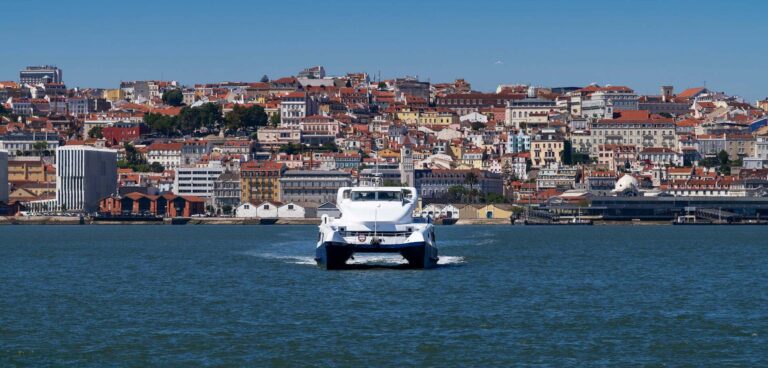Shore power specialist Zinus has been awarded a contract by ABB for the delivery of 20 of its SWC100 charging connections. The components will be installed on 10 all-electric passenger ferries entering service on the Tagus River in Lisbon, Portugal. The vessels will be built by Astilleros Gondán shipyard for Transtejo SA, and the integration of the electric power supply and propulsion automation systems will be carried out by ABB.
“We are proud and happy that ABB has chosen Zinus as the supplier of the charging connections for this large-scale electrification of an important part of Lisbon’s infrastructure,” commented Ronny Olson, sales manager, Zinus. “With two fully automatic SWC100 charging connections on each vessel, the ferries are ensured fast and smooth connection to the charging stations on land and efficient charging of the batteries on board. This is important to ensure the regularity of the routes over this busy waterway.”
When a vessel docks, the SWC100 unit automatically receives a charging plug from land to charge up the ship’s batteries. The charging plug is then released and drawn back into a charging tower when the ferry leaves. Connection and disconnection of the power supply take just 20 seconds, enabling the longest charging time possible for moored electric vessels. Zinus is also competing to win the order for the charging towers that are needed on land as part of the system.
“This is our largest single order to date for this product, and we can also note another country on our global reference list,” said Endre Eidsvik, CEO of Zinus. “The fact that such a large and recognized supplier like ABB chooses our solution is also an important recognition of Zinus’s technology, which we hope and believe will give us even more opportunities both nationally and internationally in the years to come.”
Measuring 40m long, and with a service speed of 16kts, each ferry can carry up to 540 passengers on routes that connect Lisbon to Cacilhas, Seixal and Montijo on the south bank of the Tagus river. Annually, around 19 million passengers will be carried between the towns.
With Portugal aiming to achieve carbon neutrality by 2050, the newbuild ships will be a major part of Lisbon’s efforts to introduce emission-free public transport solutions. By replacing the 10 diesel ferries currently servicing these routes with all-electric ferries, ABB estimates that CO2 emissions will be reduced by 6,500 tonnes annually.
The electric ferries are expected to enter service between 2022 and 2024.



